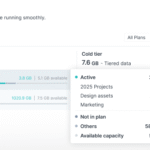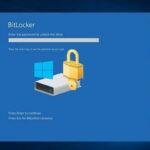Click here to buy secure, speedy, and reliable Web hosting, Cloud hosting, Agency hosting, VPS hosting, Website builder, Business email, Reach email marketing at 20% discount from our Gold Partner Hostinger You can also read 12 Top Reasons to Choose Hostinger’s Best Web Hosting
Data loss can happen to anyone. Accidentally deleted a file? Hard drive crashed? Don’t worry; there’s a solution. Here are 7 best Data recovery software to save your day. In this article, we’ll walk you through the best tools to recover your files on Windows and macOS. Let’s dive in.
What Is Data Recovery Software?
Data recovery tool helps retrieve lost or deleted files from your computer, external drives, or even memory cards. It scans your storage devices for recoverable data and brings it back to life. These tools are great for:
- Recovering accidentally deleted files.
- Retrieving data from formatted drives.
- Restoring files after system crashes.
- Recovering files before or after hard drive failure
Now, let’s look at the top picks for Windows and macOS users.

1. EaseUS Data Recovery Wizard
EaseUS is popular for a reason. It’s beginner-friendly and supports:
- Over 1,000 file types.
- Data recovery from hard drives, SSDs, USBs, and more.
Key Features:
- Preview files before recovery.
- Quick and deep scan options.
Pros:
- Simple interface.
- Supports both Windows and macOS.
Cons:
- Limited recovery in the free version.
2. Stellar Data Recovery
Stellar offers a robust recovery experience. It’s especially good for photos, videos, and encrypted drives.
Key Features:
- Recovers from corrupted storage.
- Handles encrypted drives.
Pros:
- Wide file type support.
- Works on macOS and Windows.
Cons:
- Expensive for advanced features.
3. Disk Drill
Disk Drill combines simplicity with power. It includes extra tools for disk monitoring and data protection.
Key Features:
- Fast scanning options.
- Protects data with recovery vault.
Pros:
- Easy to use.
- Offers free data recovery up to 500MB.
Cons:
- Scans can be slower for large drives.
4. Recuva
Recuva is a lightweight and straightforward tool for Windows users. It’s great for beginners.
Key Features:
- Deep scan for hard-to-find files.
- Supports recovery from damaged disks.
Pros:
- Free version available.
- Simple setup.
Cons:
- No macOS version.
5. Wondershare Recoverit
Recoverit stands out for its video recovery and repair capabilities. It’s great for multimedia professionals.
Key Features:
- Advanced video repair.
- Supports over 1,000 file formats.
Pros:
- Works with crashed systems.
- Available for Windows and macOS.
Cons:
- Subscription can be pricey.
6. R-Studio
R-Studio is for advanced users and IT professionals. It handles complicated recovery tasks.
Key Features:
- Supports RAID recovery.
- Handles damaged or formatted drives.
Pros:
- Powerful features.
- Cross-platform compatibility.
Cons:
- Steep learning curve.
7. PhotoRec
PhotoRec is a free, open-source option. It’s ideal for recovering media files.
Key Features:
- Works on multiple platforms.
- Focuses on photo and video recovery.
Pros:
- Free to use.
- Lightweight and effective.
Cons:
- No graphical interface; command-line only.
How to Choose One of the Best Data Recovery Softwares
Consider these factors:
- Ease of Use: Is the interface simple?
- Compatibility: Does it work on your OS?
- Supported File Types: Can it recover the files you lost?
- Pricing: Does it fit your budget?
FAQs
1. Can I recover files for free?
Yes, tools like Recuva and Disk Drill offer free recovery options, but they have limitations.
2. Is data recovery always successful?
No. Success depends on the extent of the damage and how quickly you act.
3. How can I avoid data loss in the future?
- Regularly back up your files.
- Use cloud storage.
- Install antivirus software.
Final Thoughts
Whether talk about hard drive failure, hard drive data loss or its recovery, none of these are new. The only point of consideration is an approach to handle it. Usually, with back up the issue can be resolved with great ease. But, if you don’t have a backup, don’t worry. Count on this comprehensive all-in-one solution to recover your lost data.
Choosing the right data recovery software depends on your specific needs. Whether you’re a beginner or a tech-savvy user, there’s something for everyone in this list. Don’t wait for disaster to strike—be prepared with the right tools.
Now loading...






